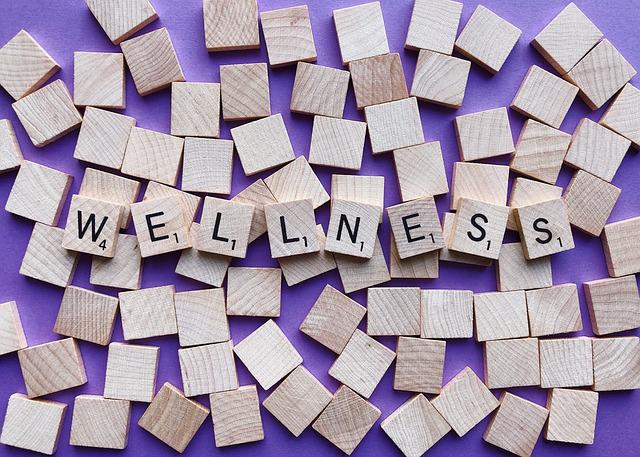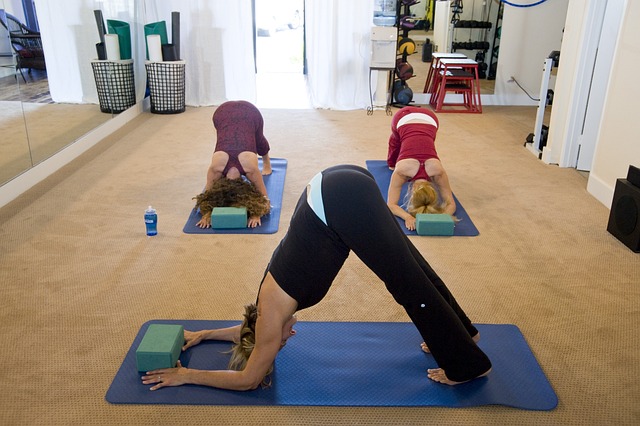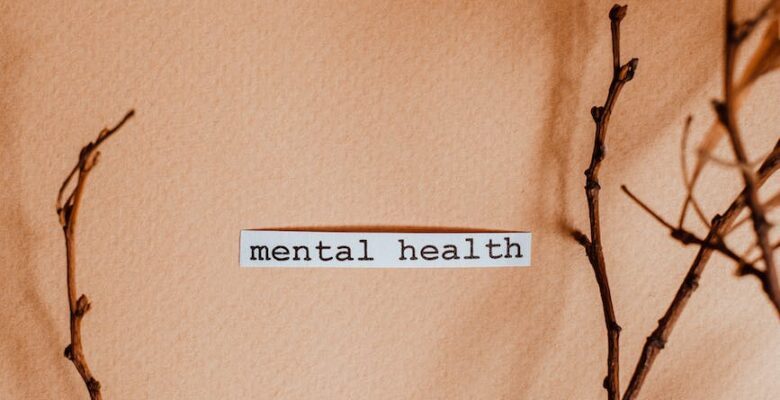Developing habits to improve mental health can make a significant difference and improvement in your daily life.
Nowadays, mental health is a hotly debated topic. You may notice discussions regarding mental health online, in person, on your favorite show, or anywhere else.
However, extensive, repeated use of any term can cause the meaning to become muddled, if not completely misconstrued. So, if you hear the phrase “mental health” frequently yet are unsure what it means.
“Mental health is all about the functionality of your brain and all that impacts it,” explains Oludara Adeeyo, an author of “Self-Care for Black Women.” and a psychiatric social worker.
Mental health encompasses both your social and psychological well-being.
Many factors influence mental health, some of which are beyond your control, such as genetics, life events, and family history.

However, you do have control over a significant percentage of your mental health, according to KC Davis, a certified professional counselor and author of “How To Keep House While Drowning.”
The ability to impact your mental health is critical because your mental health is really important.
What is the significance of mental health?
According to Alison Seponara, a licensed professional counselor and author of “The Anxiety Healer’s Guide,” mental health influences how you deal with stress, interact with others, and make decisions.
Seponara goes on to suggest that taking care of your mental health can result in
- increased mood,
- decreased anxiety
- improved thinking
- deeper connections
- increased self-esteem and self-confidence
According to Seponara, being mentally healthy can also help you manage health disorders that are caused by stress, which can lead to heart disease and other illnesses.
As you experiment with new habits and incorporate them into your routine, try to frame these changes as self-kindness rather than self-punishment. Criticism and negative self-talk can do far more to improve your mental health and perspective than maintaining a kind, compassionate attitude toward yourself.
Not sure where to begin? Below are eight ideas for promoting better mental health, as well as information on how to get professional help.
1. Get enough sleep
Good sleep is more than just a necessity for physical well-being. Good sleep will improve your mental health.
Data from 273,695 adults in the United States were included in one 2021 study. The researchers discovered that persons who slept for 6 hours or fewer per night were around twice more likely to develop mental distress than those who slept for more than 6 hours.
The quality of your sleep is also important: Sleep disruption might exacerbate mental health issues.
Start with the following habits to get quality sleep:
- Avoid foods and drinks with caffeine after 3 p.m.
- Try to get up and go to bed at the same hour every day.
- Make your bedroom a clutter-free, peaceful, and soothing.
- Maintain a temperature in your bedroom of roughly 65°F (18.3°C).
If you have a sleep disturbance, it may be more difficult to develop healthy sleeping patterns on your own.
If you suspect your sleeping problems are caused by a sleep disorder, a sleep specialist can help you with effective evidence-based treatments, such as cognitive behavioral therapy for insomnia.

2. Limit your use of computers and cell phones.
“Constant information about other people’s lives can cause someone to compare themselves and promote feelings of low self-esteem, which increases feelings of anxiety and depression,” Adeeyo adds in a statement.
Keep your phone in a drawer or out of your sight while sleeping to spend less time on social media.
Make a list of more significant tasks to replace your usual scrolling periods.
Turn off your phone’s notifications or uninstall social applications.
3. Improve your interpersonal ties
Humans need to socialize, and healthy relationships can benefit your mental health in many ways.
Friendships, for example, can alleviate loneliness, make it simpler to obtain emotional support, and bring significance to your life.
Stay in contact by checking in on a regular basis, even if it’s just a brief text or a hilarious meme.
- Meet together for a walk or brunch in the morning.
- Request a brief conversation during your lunch break.
- Make biweekly or monthly supper plans.
Making a point to catch up when you do spend time together can also help. According to 2018 research, catching up and joking in person predicted closer ties in addition to the number of hours individuals spent together.
4. Exercise on your own terms.
Exercise can provide benefits to your mental healthhas, such as relieving stress, mood elevation, the ability to fall asleep faster, longer, and the ability to manage symptoms of depression and anxiety disorders.
Being active can mean different things to different people. Also, it doesn’t have to entail going to the gym unless you really want to. Make movement more fun for yourself by choosing physical activities that are suitable for your body, health, and interests.
To begin, try a variety of physical activities and choose one you enjoy abd stick with it.
Joining a jogging or walking group could be an enjoyable form of movement.
attempting sitting movements in a slower-paced restorative yoga class, creating a dance party, taking stretching breaks every hour, gardening or performing other yard work, a weekend family trek or walk along the beach
In other words, you don’t have to engage in strenuous exercise to benefit your mental health.

“A few minutes of stretching can make a big difference in your overall mental health.” Stretching helps increase blood flow and oxygen flow throughout your body, making you feel more calm and cheerful,” says Christopher S. Taylor, Ph.D., LPC-S, founder of Taylor Counseling Group and host of the “For Self-Examination” podcast.
5. Enjoy nutrient-dense foods
Certain foods might also have an impact on your mental health. To help enhance your mental health, try including foods high in mood-boosting nutrients in your diet, such as
- berries.
- bananas and beans
- complete grains
- fatty fish, such as salmon
It can also be beneficial to just ensure that you fuel your body on a daily basis – eating anything is preferable to eating nothing.
Drinking enough water throughout the day can be beneficial as well. When your body is dehydrated, you’re denying your brain and body the nutrients needed to operate and survive at a more optimal level.
Certain meals, such as alcohol, coffee, refined carbohydrates, and added sweets, may aggravate anxiety symptoms. As a result, restricting these foods may help alleviate some of your symptoms.
6. Recognize when to relax
On bad days, you may find it impossible to do any of the above, which may make you feel much worse.
Davis recommends kinder, more accessible techniques in these situations, such as creating a hygiene pack when you can’t wash – think dry shampoo and cleansing body wipes.
Set a timer for 5 minutes to clean something, buying a premade meal because cooking anything feels nearly impossible
You might attempt a similar method. Make a commitment to taking one modest step every day.
Whether having a cup of coffee in the morning, or writing in a journal, making this daily promise to yourself will help to eventually become a habit, and you will begin to feel empowered.
7. Schedule time for rest.
While what constitutes “rest” varies from person to person, it generally refers to allowing your mind and body to unwind and repair.
Do you struggle to unwind and feel rested?

Rosie Acosta, meditation and yoga teacher, suggests the following steps:
- Lie on your back, hands by your sides. Spread your feet to the width of your hips or a little wider.
- Consider being calm while remaining present. You are relaxed but alert.
- Pay attention to your physical body first, then to your breath.
- Imagine a slow-moving wave entering from the bottom of your feet and traveling to the crown of your head as you inhale.
- On the exhale, imagine a slow-moving wave from the crown of your head to the soles of your feet.
Allow your body to become heavy, and then stay in this relaxed state, presenting awareness for 10 to 30 minutes.
Have only a few minutes to unwind? Acosta recommends the following quick restorative practices:
- Close your eyes and take several deep breaths while feeling the warmth and comfort of your touch on your heart.
- For 12 cycles, breathe in for 2 counts and out for 4 counts.
8. Get some sunlight
Your outside time does not have to be extensive. In the words of Taylor, “Five minutes of blue skies can do your mind and your heart some real good.”
Are you stuck inside all day? If you have a few minutes, Taylor suggests:
- Take a little walk in your backyard while standing outside and breathing in some fresh air
Alternatively, consider the following:
- open the window near your workstation
- advise holding a work meeting outside, eating lunch at a local park, and exercising outside.
The strategies listed above can help improve mental health, but they cannot “cure” mental illnesses.
To put it another way, changing your routines may not always alleviate chronic mental distress. Working with a therapist, on the other hand, can be very effective in enhancingng mental health.
You can seek professional assistance at any moment. You do not need to be depressed, anxious, or experiencing any other specific mental health symptoms to benefit from treatment.
However, reaching out becomes especially vital if:
You’ve been through a stressful or traumatic event; you’re more upset, nervous, or depressed than normal, and you’re frequently agitated, irritated, or furious.

Your motivation has plummeted, and you’ve observed changes in your food and sleeping habits.
You frequently struggle to get through the day; you feel stuck or overwhelmed; you use alcohol or other substances more than usual; or you engage in other unhelpful coping practices.
To Conclude
Your mental health has a crucial impact on your overall quality of life. There are many things that can affect mental health that are outside your control, but incorporating healthy behaviors into your daily routine can help you feel better.
Just keep in mind that when it comes to developing new habits, it’s usually better to start with one or two at a time rather than a complete overhaul. Then, check in with yourself to see how those modifications aided you.
If your mental health deteriorates, it may be time to seek the help of a therapist. Professional assistance can be a valuable addition to your good mental habits toolbox.
